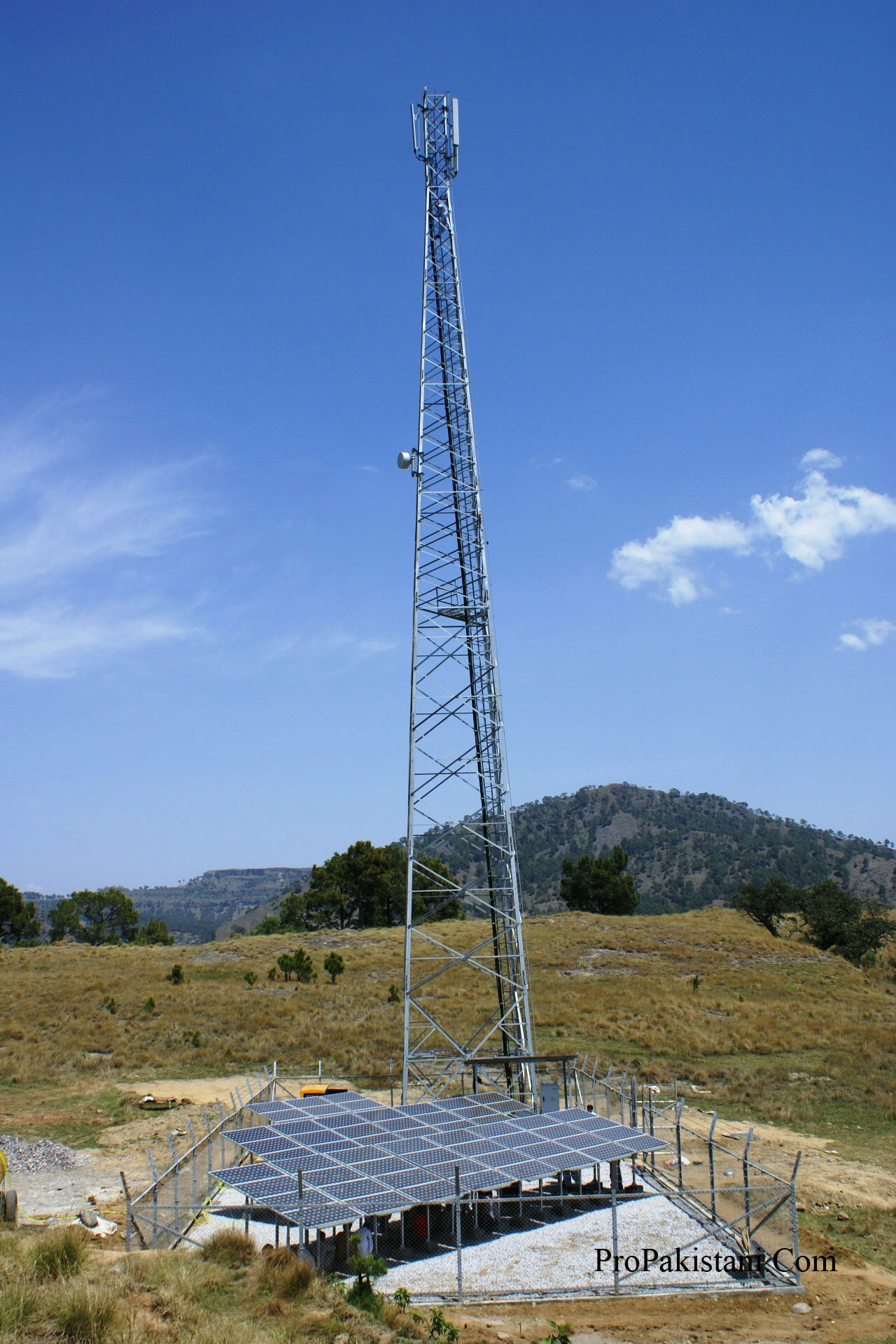Energy shortage, dependency on fossil fuels, rising cost of
energy and environmental pollution have become the biggest challenge in modern
times. With limited resources and quick depletion of fossil fuel resources, the
demand and supply situation is getting worse with each passing day.
Pakistan is having a huge market of mobile telephone and an
ever increasing exponential growth in the mobile sector. The telecom equipment
needed to support the growth of telecom has also increased; so is the use of
BTS (Base Transceiver Station) towers. With thousands of BTS installed all over
the country, average consumption of electricity of these BTS is moving from
huge to humongous.
Currently BTS towers depends on On-Grid power which is
provided by WAPDA, however with increasing
loads shedding, Telecom companies installs around 10-20KVA of generators on
all BTS sites to keep the BTS telecom tower alive during load shedding hours for
consumer communication needs.
Currently only Telenor
has more than 7000 sites operational all over the country (a Telenor employ who
do not want to be named told). The data is also available on PTA
site which has not been update in the last 1 or 2 years or so.
Pakistan is facing an average 6-8
hours of load shedding each day. Each of the BTS station takes an average
of around 3-4kWh of total load.
A total of minimum 21 MW of electricity is being consumed by only one telecom operator per Hour. This means 378MW of electricity is being consumed each day by one Telecom operator (assuming 18hours of electricity being used from Grid).
This is just one side of the electricity consumption, Diesel generator used as a backup for BTS
towers runs an average of around 4-6 hours each day, they not only put burden
on financial exchequer of the government but, also responsible for noise and air
pollution in terms of carbon
foot print.
If only 30% of this electricity consumption of grid (WAPDA) can be saved by installing renewable energy sources like Solar or wind, Pakistan can save around 110MW/day of electricity just from one telecom operator. Around 500MW of electricity per day can be saved just by converting 30% of the already use grid electricity of all telecom operators’ BTS tower towards Solar renewable energy system.
Pakistan, being close to equator, is exposed to enormous
sunshine for maximum part of the year. Hence solar energy is available in
abundance in most part of the country. A study
by USAID reveals the fact that the average
solar radiation in different part of the country is significant enough to
generate almost 3 to 6 KW of energy per sq.m. / Hour.
Converting BTS towers to renewable energy is a win-win
situation even for the Telecom companies. The payback period of solar renewable
energy is mere 13-15 years when compared with On-Grid electricity (WAPDA), and
after that this energy is totally free. Even a 12th grade student
can calculate the revenues of what telecom companies can really benefit from solar
energy sources.
Note: All calculations are research is done by the author
himself, and there might be a slight difference with the original result.
















